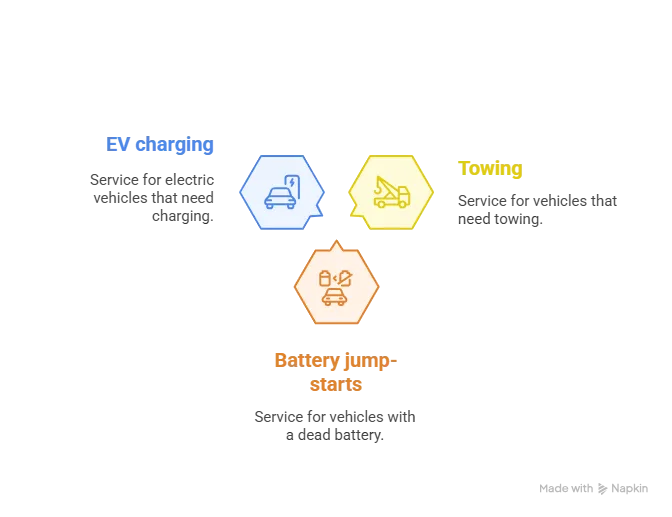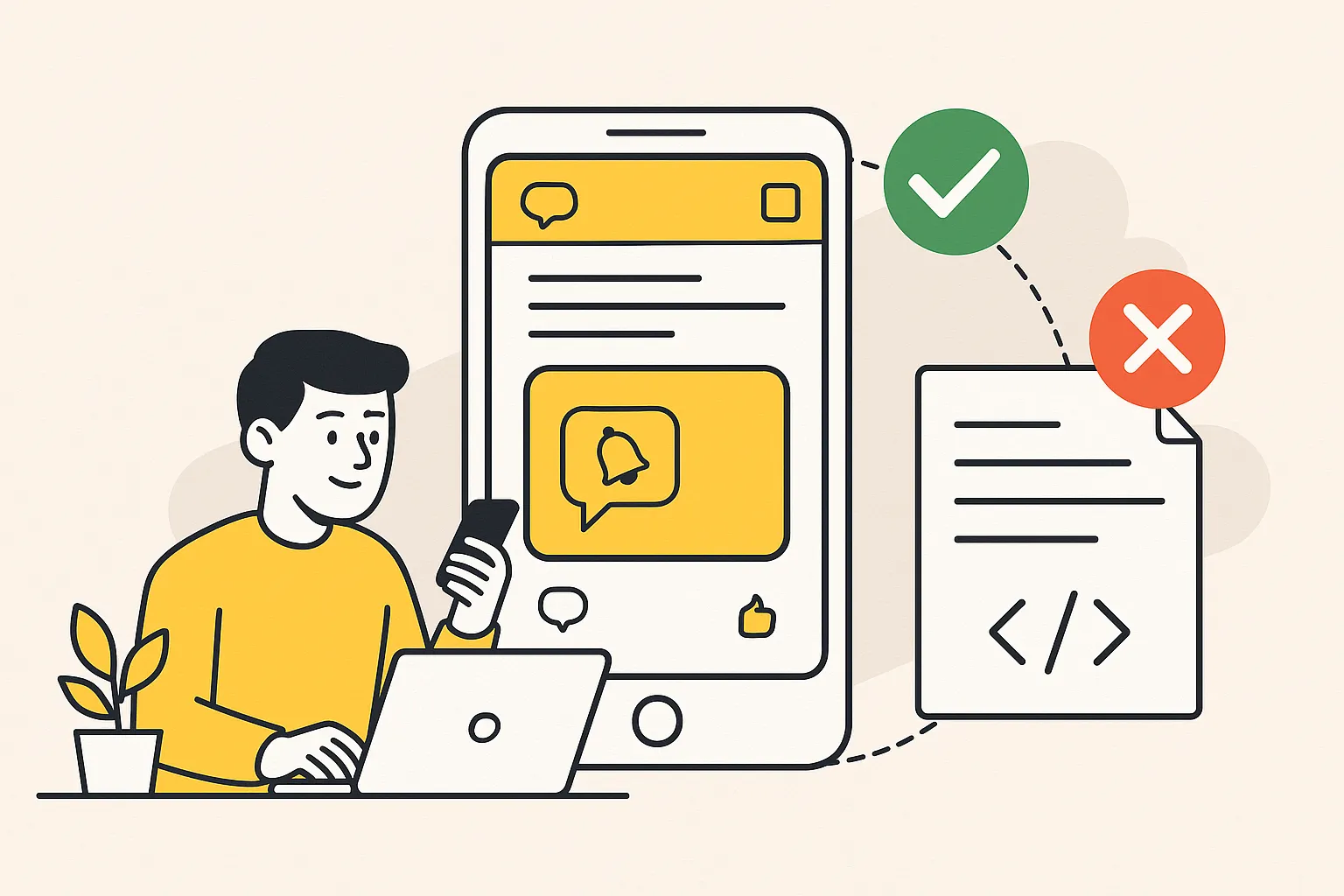I was halfway to a pitch meeting when my dashboard lit up like a Christmas tree—flat tire, zero signal bars, conference call in 10 minutes. Sound familiar? Roadside emergencies don’t care about your investor deck or your lunch plans. They cost precious minutes, money, and—if you’re running a young company—brand credibility.
Now imagine you’re the founder who solves that pain, dispatching the nearest tow truck with Uber-level ETA transparency and Venmo-simple payments. The catch? Building that experience from scratch can burn more cash than the clunker on the shoulder. That’s why an increasing wave of entrepreneurs is skipping “from-zero” code and going straight for a Honk clone—a ready-to-launch, white-label version of the U.S. roadside-assistance unicorn.
If you’re wondering whether a clone is smart or “cheating,” stick around. We’ll unpack the tech, the numbers, and the real-world stories. By the end, you’ll see why many founders choose Miracuves’ battle-tested Honk Clone Development over custom builds—and how that decision vaults them to market before the next tire blowout. (Yep, Miracuves powers a fleet of high-performance clones; more on that shortl
What is a Honk Clone?
A Honk clone is a ready-to-launch on-demand roadside assistance app that mirrors the functionality of the popular Honk app—used by drivers across the U.S. to get towing, flat tire help, battery boosts, lockout services, and more with just a few taps on their smartphone.
Think of it like Uber, but instead of hailing a ride, you’re hailing a tow truck or emergency help for your car. The Honk clone comes with all the tech essentials baked in—user apps, driver apps, real-time tracking, secure payments, and admin controls—so entrepreneurs can skip the heavy lifting and focus on growing their brand.
Read More : What is Honk App and How Does It Work?
Roadside Assistance: A Market Screaming for Speed
Global roadside-assistance revenue hit US $26.6 billion in 2024 and is projected to reach US $35.4 billion by 2030—a steady 5 % CAGR driven by smartphone penetration, on-demand lifestyles, and the EV boom.
Micro-trend check

Custom Build vs. Clone: The 7-Layer Decision Dip
Time to Market—Tow Truck vs. Bullet Train
A scratch build means six-plus months just for MVP wiring: geofencing, driver apps, payment rails, and compliance. A proven clone ships within weeks—often before your provisional patent paperwork clears.
Development Cost—Stop the Cash Bleed
Hiring a full-stack team, DevOps, QA, and 24/7 SRE support can sprint past US $250k pre-launch. Miracuves’ Honk clone slashes that to a predictable, one-time license plus modest customization—a difference many seed rounds simply can’t absorb.
Feature Parity—and Beyond
A blank slate risks shipping half the features Honk users take for granted (live GPS, driver rating, AI dispatch). A clone starts at parity and lets you layer differentiators—think EV-only mode, corporate dashboards, or gamified loyalty—on solid scaffolding.
Five Unfair Advantages of Miracuves’ Honk Clone
Battle-Tested Architecture
Our codebase has weathered peak loads—holiday weekends, monsoon seasons, and viral TikTok spikes—without collapsing. That’s hard-earned uptime you inherit on day one.
Real-Time Dispatch & AI Routing
We’ve integrated machine-learning ETA predictions that shrink average wait times by up to 18 %. Your users see faster trucks; your partners see lower dead-heading costs.
White-Label Flexibility
Change color palettes, currencies, even right-to-left scripts without re-architecting. Localize for Jakarta today, São Paulo tomorrow.
Scalability & Security
Hosted on auto-scaling Kubernetes clusters with end-to-end encryption and GDPR/CCPA hooks. SOC 2 paperwork? Already in the binder.
Monetization-Ready Modules
Drop-in revenue drivers—subscription plans, surge pricing, in-app ads for tire brands, affiliate EV-charger maps. Yes, we thought of that.
Founders Who Jump-Started Success
- GulfTow (MENA): Went live in 42 days, broke even in month 4 thanks to prepaid corporate fleet contracts.
- ZapAssist (Latin America): Added an EV-only “battery boost” button and captured 12 % of São Paulo’s new-energy taxi segment in a year.
- QuickGear (EU): Used our API to plug into insurer APIs, cutting claim call-times by 35 %.
ROI Calculator: How Much Do You Really Save?
Assume you’d spend US $35k/month on a senior dev trio, plus US $8k on cloud and tooling. Over nine months that’s ~US $387k. Miracuves’ Honk clone license and custom skinning? Roughly a third of that. That kind of margin can fund influencer outreach, digital ads, and even your first operations hire.
Plus, when you launch faster, you start earning faster—meaning your break-even point moves closer. And let’s not forget the emotional ROI: fewer late-night code fires and launch delays means a calmer, more focused founder.
Future-Proofing: EVs, Connected Cars & Satellites
With EV battery failures now the second-fastest growing incident type, startups need DC fast-charge partners and range-aware routing baked in. Our EV module automatically tags providers with CCS or CHAdeMO rigs. Pair that with incoming satellite ping support (thanks, Apple inspiration) and you’re ready for black-spot highways in Ladakh or the Outback.
We’re also integrating predictive maintenance alerts and IoT fleet data compatibility to prepare your platform for next-gen vehicles. As the industry pivots toward autonomous roadside support, your backend will already be smart enough to adapt. It’s not just future-ready—it’s future-agile.
TechCrunch reported that Honk partnered with Farmers Insurance by white-labeling its technology—clear evidence that even large enterprises are eager for scalable roadside assistance solutions.
Conclusion :
Roadside help isn’t sexy—until you’re stranded. Startups that launch fast, stable, and feature-rich win the loyalty race. A Miracuves Honk clone gives you that unfair head-start while freeing capital for growth hacks and partnerships.
Emerging trends—satellite SOS, autonomous-tow drones, subscription car ownership—will only widen the gap between movers and cautious custom builders.
At Miracuves, we help innovators launch high-performance app clones that are fast, scalable, and monetization-ready. Ready to turn your idea into reality? Let’s build together.
FAQs
1. Will a clone look “generic”?
Not at all. Miracuves delivers full white-label control—colors, layout, even micro-interactions—so your brand shines.
2. Can I add unique features later?
Absolutely. Our modular codebase lets you plug in new screens, AI models, or third-party APIs without forks or downtime.
3. How secure is the payment flow?
We use PCI-DSS-compliant gateways and tokenization. No card data ever touches your servers.
4. What about local regulations?
From GST e-invoicing in India to GDPR in Europe, compliance hooks are pre-wired. We’ll help you toggle the right ones.
5. Do I need a huge server budget?
Nope. Auto-scaling cloud infra means you pay for real usage. Many clients spend under US $400/month in the first quarter.
6. How soon can we launch?
Typical timeline: discovery call Monday, staging build in two weeks, app-store submissions by week five—assuming prompt content approvals.








